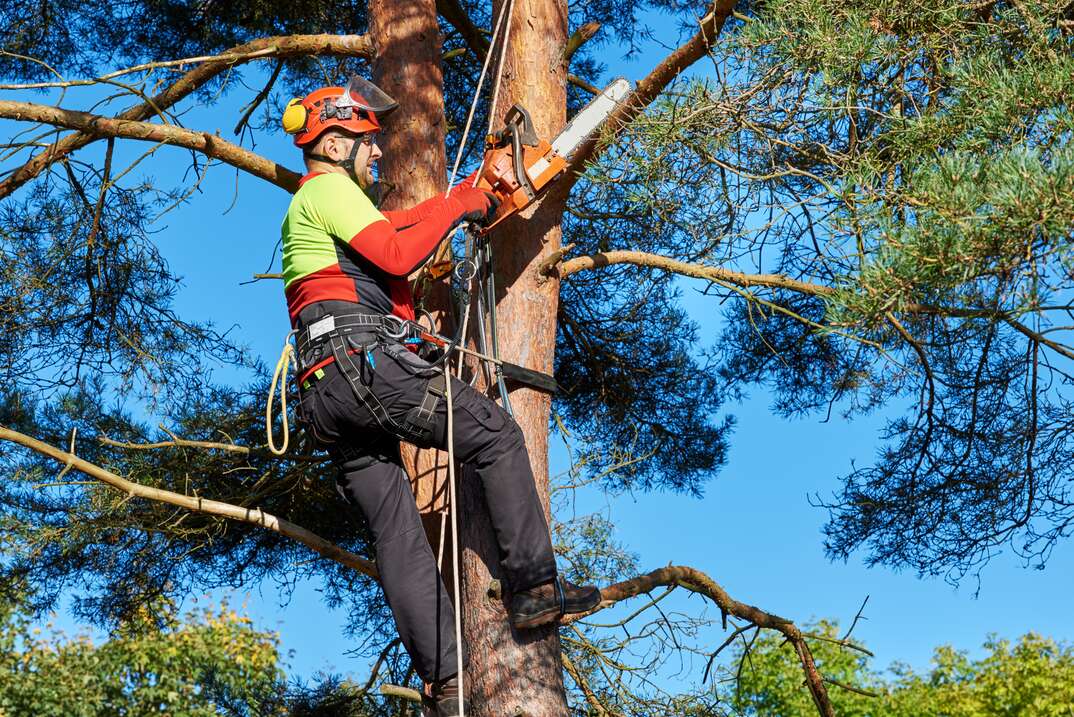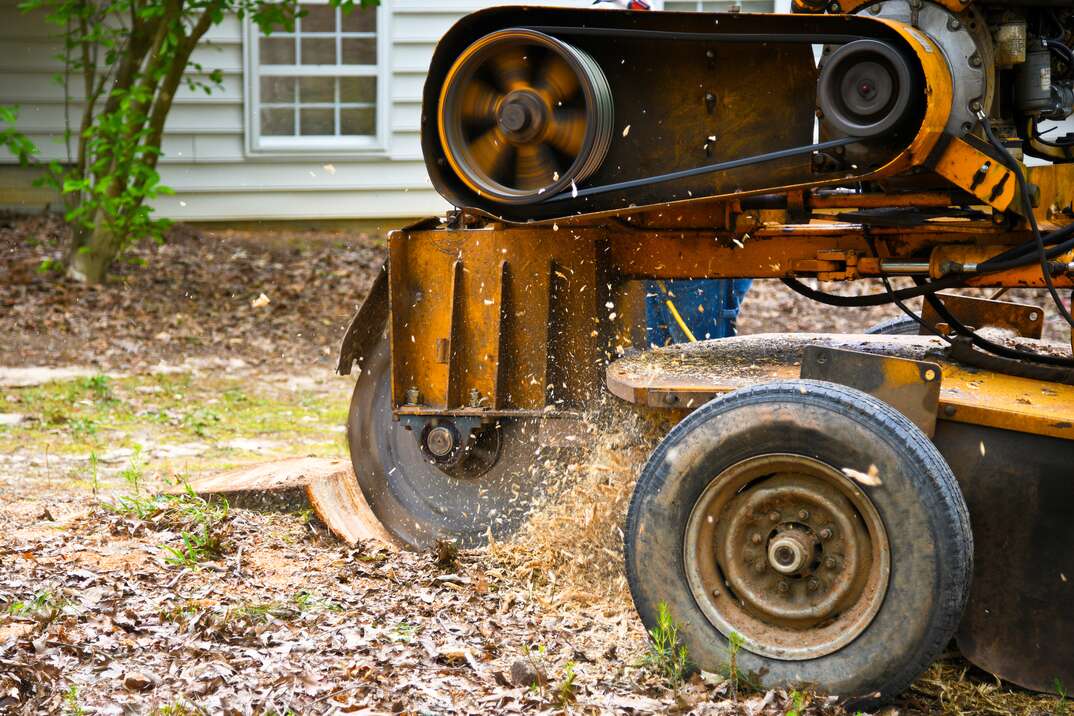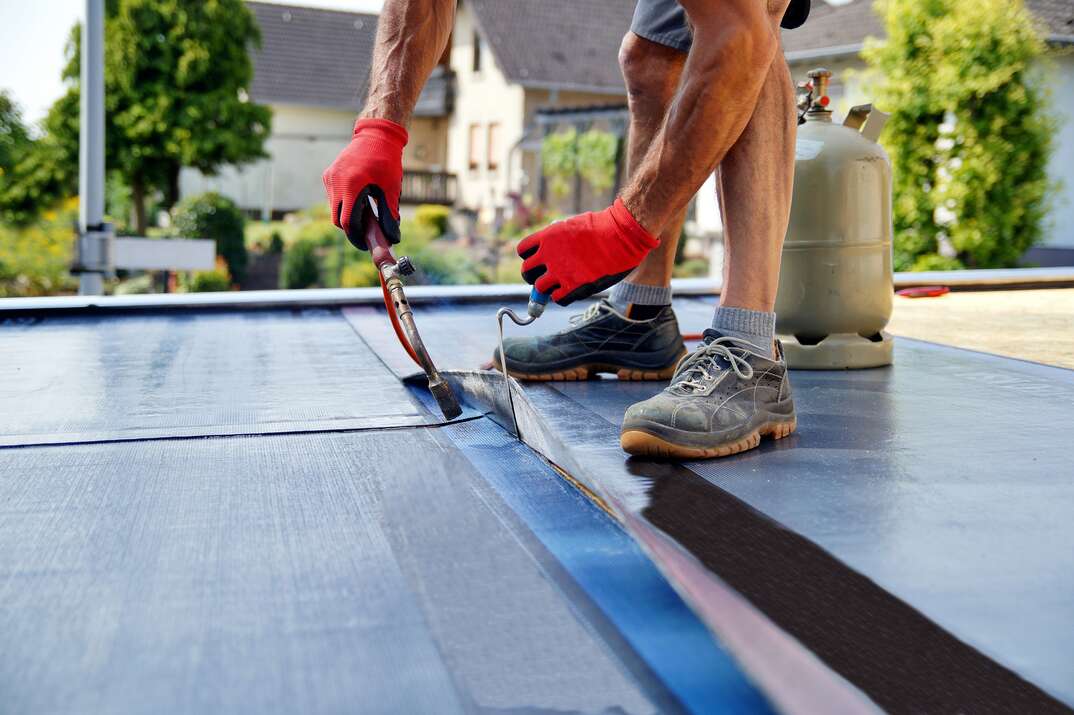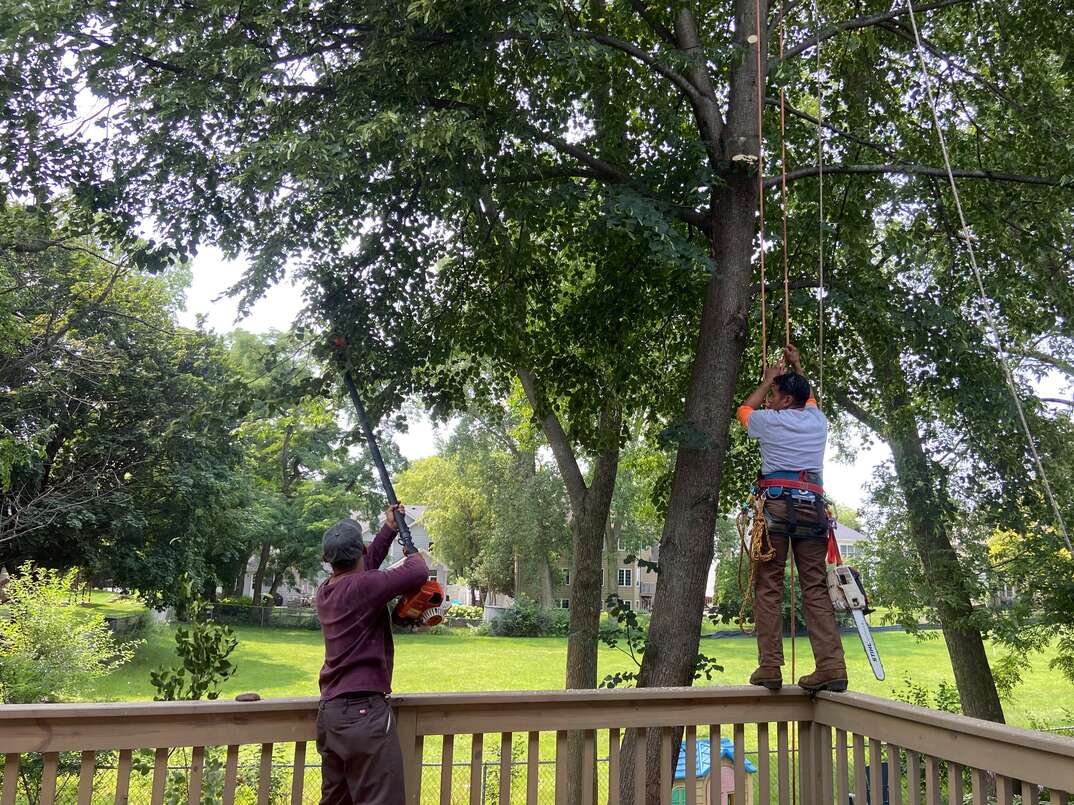How Do You Cut Down a Tree? Axed and Answered...
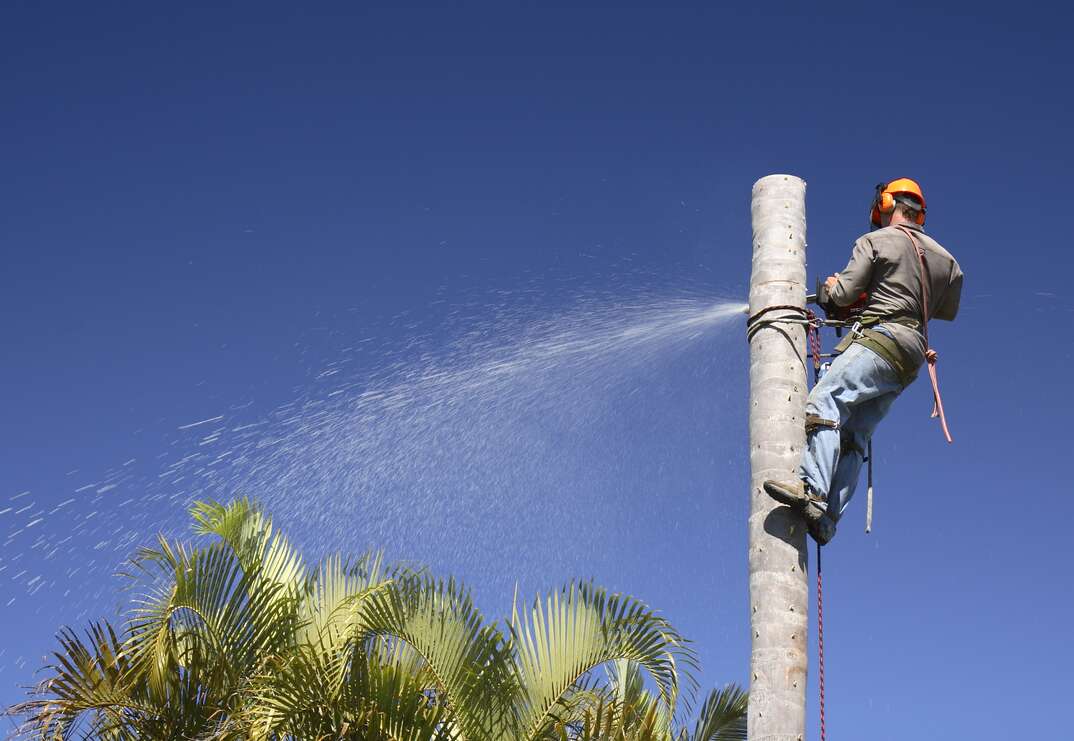
Tree Removal at a Glance
- Tools and equipment: Handsaw, ax or chainsaw; goggles, gloves, helmet, earplugs, coveralls
- Step 1: Safety check of surrounding area
- Step 2: Plan which way tree will fall
- Step 3: Cut notch
- Step 4: Fell tree
- Step 5: Remove tree
Trees provide oxygen, shade, visual interest to the landscape and homes for wildlife. Still, they aren't always a welcome feature of your yard — especially if they’re large, damaged or too close to your house. Cutting down an unwanted tree can be a do-it-yourself project.
This May Also Interest You: How Much Does It Cost to Trim or Remove a Tree?
If you have the right equipment, it’s possible to safely cut a tree without professional assistance. Here's a basic guide to get you started.
Why Cut Down or Remove a Tree?
Trees can be a beautiful aspect of your landscaping. Some homeowners invest in tree care because having certain types of trees in your yard can increase property value. But there are some reasons you might want to remove a tree, including:
Damage
Trees that are dead, dying, diseased or damaged by a storm or wildlife can be dangerous. The tree may need to be removed before it falls and causes damage or infects other trees. A damaged tree might simply be an eyesore.
Bad Location
Perhaps the tree is too close to the house and the roots are threatening your foundation. Maybe it’s in the middle of the spot where the new pool will go. In some cases, the tree itself might be damaged by construction or landscaping plans because of where it is.
Annoyance
Some trees drop a lot of debris. Sap, seeds or fruit can cause damage, especially if you park near the tree or it hangs above a patio. Trees can also be home to insects and animals that you may find disturbing.
Too Many Trees
Maybe you simply have too many trees. As they grow, they could compete with and even damage each other.
Cutting Down a Tree: DIY Steps
Felling a tree goes well beyond basic lawn care, so it's a good idea to plan ahead. Here’s a basic step-by-step guide:
1. Safety First
Check the surrounding area. Are there power lines near where the tree could fall? If the tree is large, is there a chance it could fall on your home, outbuildings, vehicles or even a person?
2. Make a Plan
Before you cut, decide where you want the tree to fall — typically into a totally clear part of the yard. You'll need to cut the tree in a way that encourages it to fall in that direction. You can also guide the tree by tying rope around it and having someone pull on it after you've made some cuts. It's important to note that a tree that's heavy on one side (because more branches grow there, for instance) will fall to that heavy side without any other force on it.
3. Cut a Notch
Make a cut on the side of the tree that faces where you want it to fall. Depending on the size of the tree, your equipment and your experience level, you can cut the notch with a hand saw, ax or chainsaw. Begin with a cut that angles down 45 degrees and goes about one-third of the way into the tree. Then, make a horizontal cut below that one, creating a sort of pie slice of missing wood in the trunk.
4. Fell the Tree
Cut from the opposite side of the trunk toward the notch. You typically do not need to cut all the way through; if you reach within half an inch of the notch, the tree is likely to begin falling — especially if you use ropes to pull it. Just ensure everyone who is manipulating the ropes is clear of the fall zone.
5. Remove the Tree
Carefully use a chainsaw to cut off all branches and then cut the branches and trunk down into pieces that can be moved. Cut them up for firewood or haul them off.
More Related Articles:
- Basic Lawn Care and Maintenance Tips
- How Much Does Sod Cost to Install?
- A Grassroots Effort: How to Lay Sod in 4 Steps
- How Much Does a Sprinkler System Cost?
- Au Revoir, Standing Water! How to Install a French Drain in 8 Steps
How to Cut Down a Tree With a Chainsaw
You can use the above steps if you’re cutting your tree with a chainsaw. If you're dealing with a tree more than a few inches thick, a chainsaw can save you a lot of time and sore muscles. It will take quite a few swings to bring down even a medium-sized tree with an ax.
Always follow good safety practices when you're cutting trees or branches. Wear safety equipment, such as goggles, gloves and a helmet. If you're working with a chainsaw, ear protection is also a good idea. Chaps or coveralls made of Kevlar or another thick material can also protect your body while working with a chainsaw.
When to Get a Pro Involved
Tree removal isn't always a DIY job. Here are some circumstances when you’ll probably want to call an expert:
- The tree is extremely large or tall (especially if you can't accurately estimate where the tree might fall)
- There are power lines or other hazards
- You want the entire tree (including the stump and roots) removed
- You aren't comfortable using a chainsaw
Since we’re all home now more than ever, being prepared for unexpected home repairs with a plan from HomeServe is important. Having a plan in place gives you the peace of mind knowing that you can simply call our 24/7 repair hotline for covered breakdowns. See what plans are available in your neighborhood.
